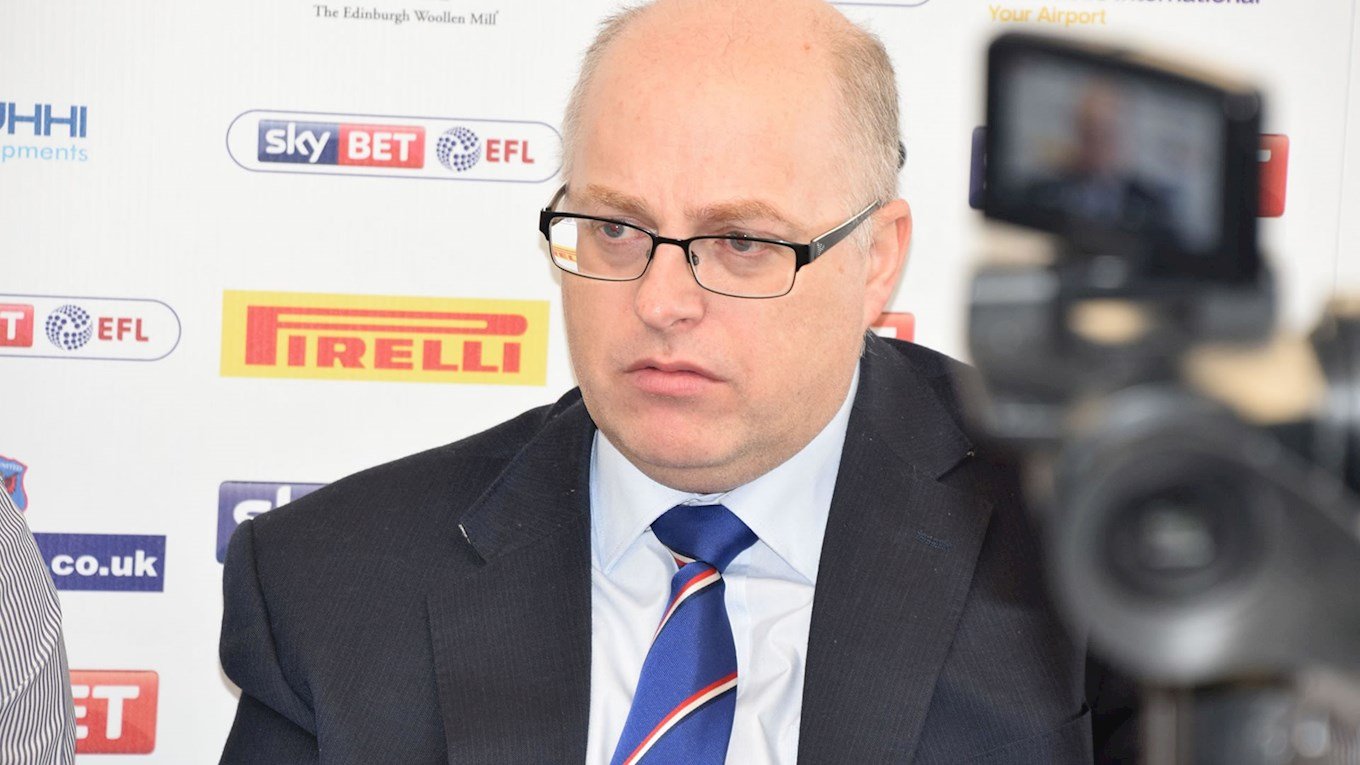Chief executive Nigel Clibbens confirmed that the club has received two enquiries about potential investment from brokers acting on behalf of other parties during this calendar year, but that nothing had developed on either front since initial contact had been made.
“Periodically we get phone calls from people who are potentially interested,” he told us. “These are mostly brokers who tell us they represent somebody else, and they’ve seen that there might be an opportunity at Carlisle United.
“They come and talk to us, so we give them the rudimentary information and leave it with them. We’ve had two approaches like this during this calendar year and nothing has come of them, but I haven’t seen them go on to get involved at other clubs either.
“That’s how it is at this level. It’s rare that you see ownership changes at League Two clubs except in very distressed situations.”
Speaking more about the approaches which have been made, he commented: “I think the two who have spoken to us this year have been more in the way of fishing expeditions.
“That’s why you have to be careful about what kind of information you give across. They need to know enough to work with, but this type of thing happens regularly.
“There are always people wanting to get into the game, for whatever reason, but these approaches aren’t still live in any shape or form. They were unsolicited approaches, they’ve appeared interested, we’ve talked to them, but nothing has come of it.
“And, like I say, they haven’t said that we aren’t what they want and they haven’t then moved on to somewhere else.”
On whether the club is available should a suitable approach emerge, he said: “The view hasn’t changed. The club is there for anybody to take who wants to come and take it, as it has been for many years.
“We do get people asking questions, but it is very rare at this level that somebody new comes who is saying that they have the ideas and money to take a club forward. These situations tend to arise because it’s very much seen as an opportunity because it’s a club with a big problem, or serious solvency issues, and it could be viewed as one to take forward to see if they can get something out of it.
“As we’ve seen up and down the country, the problem is often not solved when a club is taken over in that way.”
“What we’re trying to do with the approach we’ve adopted is get the club to a position where somebody isn’t going to walk in and immediately have to deal with a firestorm, where they have to write huge cheques just to catch up,” he explained.
“The shareholders now have always said they aren’t in this to make any profit on it. The problem is that what I would call the good people who do want to get involved in football are reluctant because of what they’ve seen happen elsewhere. They look at what happens to other new owners and investors and they think, ‘hang on, what is it that I don’t know?’
“We want anyone who does want to come in to find a club that’s going to be stable. That will mean it’s a club which can be operated well and taken forward.”

